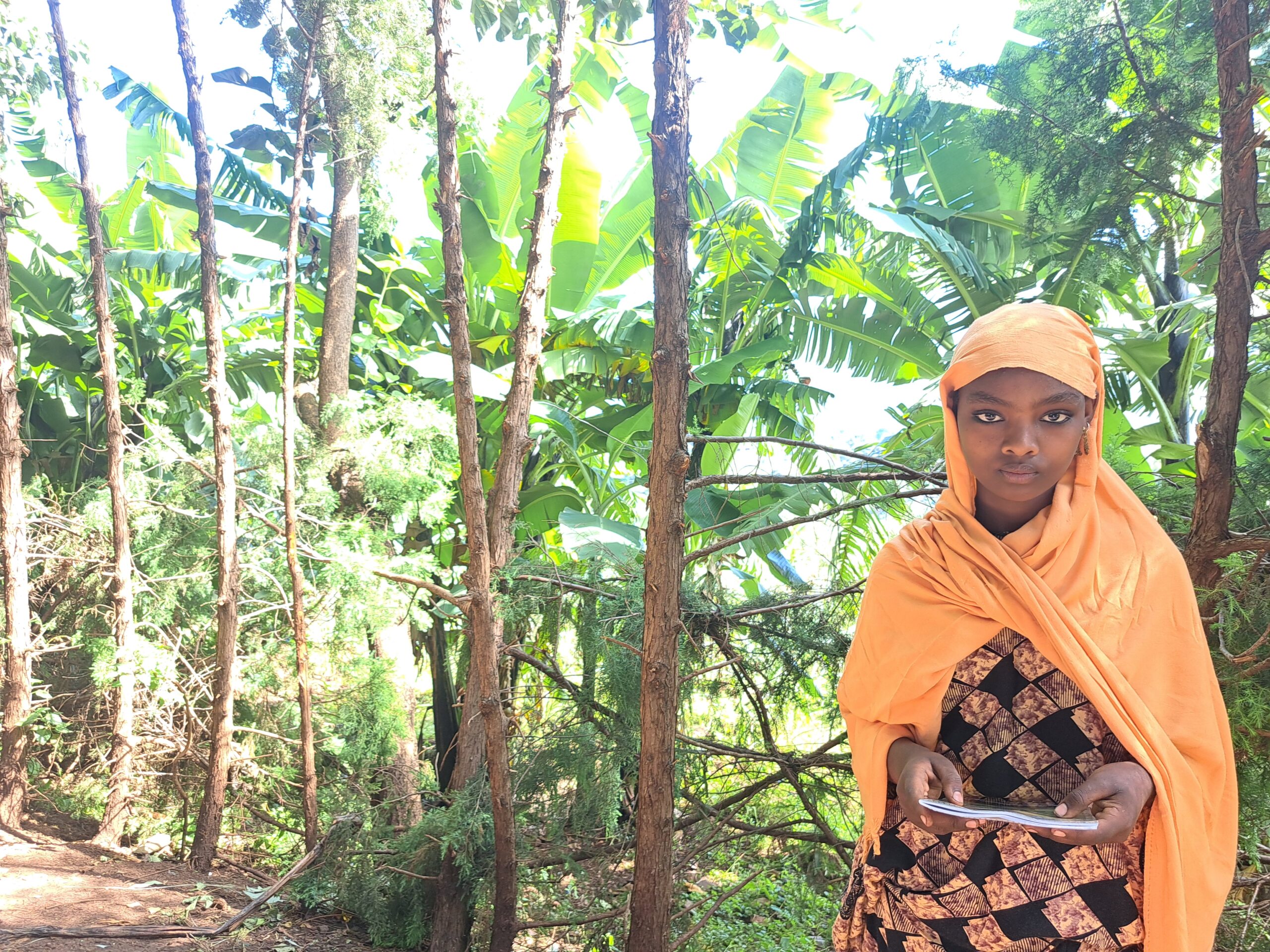Defying Tradition: Tigist Zayede’s Stand Against Early Marriage
Child early marriage is a significant issue of concern in Oda Bultum woreda (district), where the Global Affairs Canada-funded RESILIENT-WE project is currently operational. The project’s primary objective is to tackle gender inequality, empower women and girls and to strengthen their resilience to impacts of climate change and other shocks. Early child marriage in Oda Bultum is driven by economic hardships, cultural norms, and limited access to education. Patriarchy plays a significant role in perpetuating early marriage in the woreda as it does in many parts of Ethiopia. Young women and adolescent girls face health risks from early pregnancies, increased vulnerability to domestic violence, and leads girls to drop out of school, curtailing their opportunities to meet their full human potential. The prevalence of early marriage in Oda Bultum is high, with many girls being married off before the age of 18.

Fifteen-year-old Tigist Zeyede, a bright and determined student from Badessa Guda Kebele of Oda Bultum Woreda, was in the sixth grade when her life took a troubling turn. Her family, influenced by local customs and societal pressures, informed her that she was to be married immediately to a wealthy person through a traditional arrangement known as cabsa. However, Tigist was not willing to accept this fate.
Having participated in training sessions provided by the Gender-Based Violence (GBV) Case Manager through the RESILIENT-WE project led by World Vision, Tigist was well aware of the serious consequences associated with early marriage. She understood that marrying young could jeopardize her education, health, and future opportunities. Armed with this knowledge, she determined to stand up against her family’s wishes.
Despite the pressure from her family to conform to traditional practices, Tigist took a courageous step. She sought help by going to the kebele authorities and the GBV Case Manager, sharing her concerns about the impending marriage. With the support of these advocates, they approached Tigist’s family, presenting her case and emphasizing that marrying a child under the age of 18 is illegal. They explained the dangers of early marriage and the potential impact on Tigist’s future.
The intervention, which was a combination of advocacy, direct engagement with key stakeholders, a community-based support system that was put in place for GBV prevention and response, proved effective. After thoughtful discussions, Tigist’s family agreed to cancel the marriage arrangements, recognizing the importance of allowing her to continue her education.
Reflecting on her experience, Tigist expressed her gratitude, stating, “I am very grateful to World Vision for coming to our village and teaching us about harmful traditional practices and the consequences of early marriage. Now, I can return to school and focus on my education.”
Tigist’s story is a powerful example of resilience and empowerment. Through her determination and the support of her community, she not only secured her own future but also set an inspiring precedent for other girls facing similar pressures. With the continued advocacy and education provided by the RESILIENT-WE project, Tigist and her peers can pursue their dreams, break the cycle of early marriage, and shape a brighter future for themselves.
***
Source: This story is authored by the Canadian Development Agency.